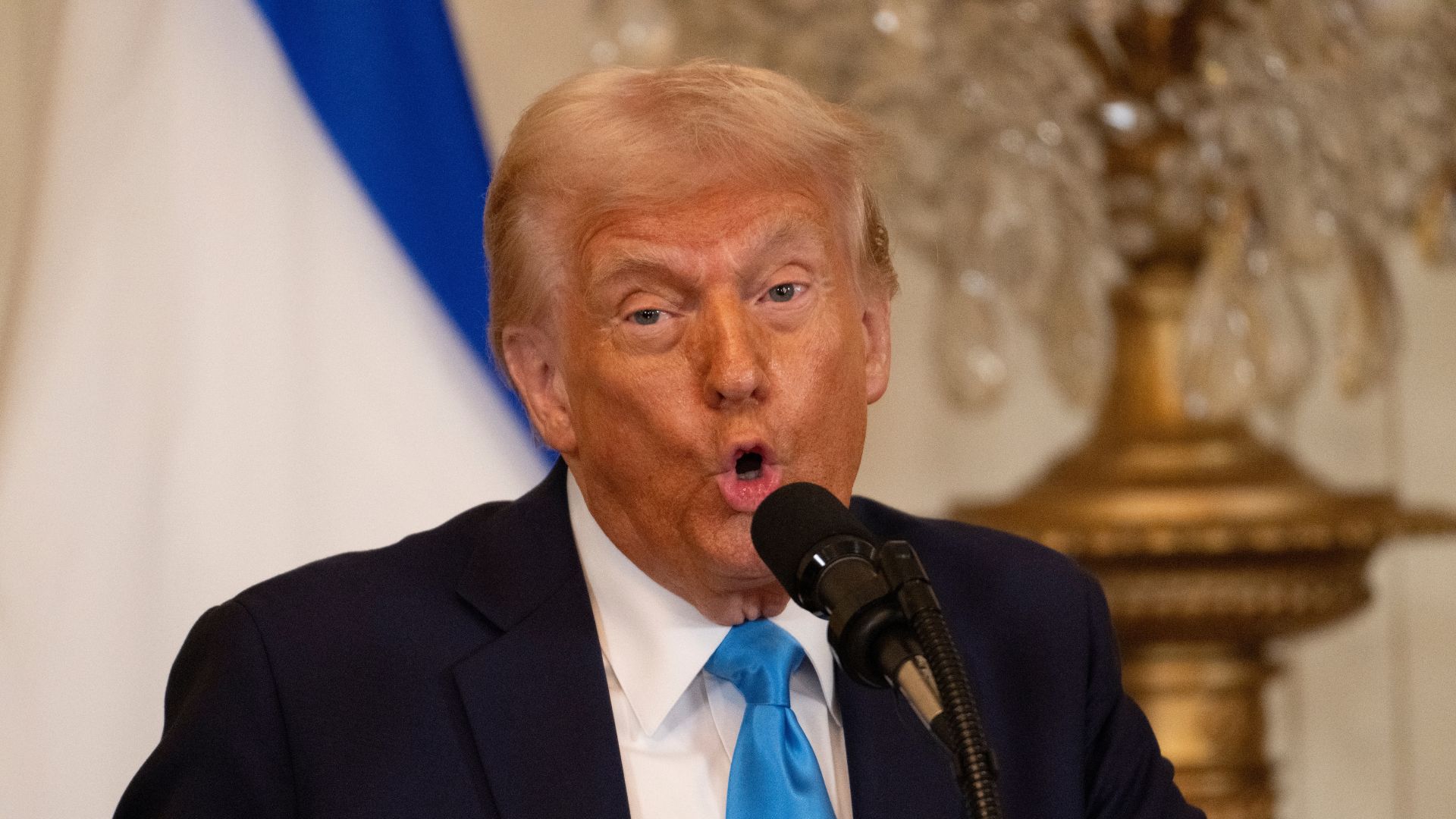
President Donald Trump on Monday announced a sweeping trade agreement with the European Union, securing additional commitments totaling over $1.3 trillion in U.S. energy purchases and direct investment.
The announcement marks a significant step in the administration’s ongoing efforts to reshape global trade policy in favor of U.S. economic interests.
According to the terms of the agreement, the European Union will purchase an additional $750 billion worth of American energy exports through 2028.
Trump’s Sovereign Wealth Fund: What Could It Mean For Your Money?
In addition, the EU has agreed to invest $600 billion in the United States over the next three years.
The trade deal also establishes a 15 percent tariff on most European goods entering the U.S., including automobiles — a figure higher than the EU’s preferred 10 percent, but lower than the 30 percent tariff previously proposed by the administration.
President Trump described the agreement as a win for American workers and industries.
“This is a great day for U.S. energy, manufacturing, and investment,” Trump said in a statement.
This Could Be the Most Important Video Gun Owners Watch All Year
“We are bringing balance and fairness to international trade while protecting our workers and rebuilding our economy.”
The White House emphasized that the deal would reduce U.S. trade deficits and expand access for American goods and services in key European markets.
In addition to energy exports, the agreement is expected to benefit sectors including automotive manufacturing, steel, and technology.
While reaction from business leaders and industry groups has been largely positive, some media outlets took issue with the scale of the U.S. gains in the deal.
Axios, in its reporting on the announcement, acknowledged the economic advantages for the United States but suggested that the deal disproportionately favored American interests.
“In the Trump-dominated global economy, the U.S. gets plenty but gives nothing in return,” Axios wrote in its coverage.
In the Trump-dominated global economy, the U.S. gets plenty but gives nothing in return. https://t.co/16pWlSedRB
— Axios (@axios) July 28, 2025
Under the subheading “Why it matters,” the outlet stated, “This is the reality of the asymmetric trade deals touted by the White House, which show how far foreign leaders will go to safeguard access to the U.S. market.”
The Axios framing drew swift attention and criticism across social media, with users accusing the outlet of presenting favorable outcomes for the U.S. as a liability.
Many online commenters viewed the reaction as evidence of political bias against the administration’s trade policies, rather than substantive objections to the terms of the deal itself.
Look how mad they are about America winning. https://t.co/fY36AAq6Ox
— Sean Davis (@seanmdav) July 28, 2025
“Gives nothing in return “ pic.twitter.com/yyoSQ0MipQ
— Just Jeff 🇺🇸🇺🇸 (@bahamamills) July 28, 2025
These Monday cope headlines are fabulous.
Going from “the world is playing Trump for a fool” to this is AWESOME. 😂
— MAZE (@mazemoore) July 28, 2025
Despite criticism from some corners, administration officials defended the agreement’s structure, emphasizing that it reflects a recalibration of long-standing imbalances in U.S.-EU trade.
Commerce Secretary Howard Lutnick noted earlier this week that previous trade arrangements allowed the EU broad access to U.S. markets with limited reciprocity.
“President Trump has made it clear from day one that we will no longer tolerate trade deals that undermine American workers or disadvantage U.S. industries,” Lutnick said.
“This agreement ensures fair terms and real investment in our economy.”
The deal comes amid a broader push by the administration to renegotiate trade relationships globally.
Last week, the White House announced a $550 billion investment agreement with Japan, bringing total foreign investment secured by the administration this month to over $1.8 trillion.
European officials have confirmed the agreement and acknowledged the strategic importance of maintaining access to U.S. markets. EU Trade Commissioner Maros Sefcovic said the deal represents a necessary adjustment to new global economic dynamics.
“This agreement protects jobs, maintains trade flows, and secures stability for both parties,” Sefcovic said at a press briefing in Brussels.

![Media Outlet Claims Trump's Huge Trade Deal Win is Too Good for America [WATCH]](https://www.right2024.com/wp-content/uploads/2025/07/Media-Outlet-Claims-Trumps-Huge-Trade-Deal-Win-is-Too-750x375.jpg)

![Former Bravo Star Charged After Violent Assault Using a Rock-Filled Sock in Tennessee Walmart [WATCH]](https://www.right2024.com/wp-content/uploads/2025/07/Former-Bravo-Star-Charged-After-Violent-Assault-Using-a-Rock-Filled-350x250.jpg)



![Karoline Leavitt Levels CNN's Kaitlan Collins and Other Legacy Media Reporters [WATCH]](https://www.right2024.com/wp-content/uploads/2025/07/Karoline-Leavitt-Levels-CNNs-Kaitlan-Collins-and-Other-Legacy-Media-350x250.jpg)
![Man Arrested After Screaming at Senators During Big Beautiful Bill Debate [WATCH]](https://www.right2024.com/wp-content/uploads/2025/06/Man-Arrested-After-Screaming-at-Senators-During-Big-Beautiful-Bill-350x250.jpg)

![Illegal Alien Walked Free After Decapitating Woman, Abusing Corpse for Weeks [WATCH]](https://www.right2024.com/wp-content/uploads/2025/07/1753013138_Illegal-Alien-Walked-Free-After-Decapitating-Woman-Abusing-Corpse-for-350x250.jpg)






